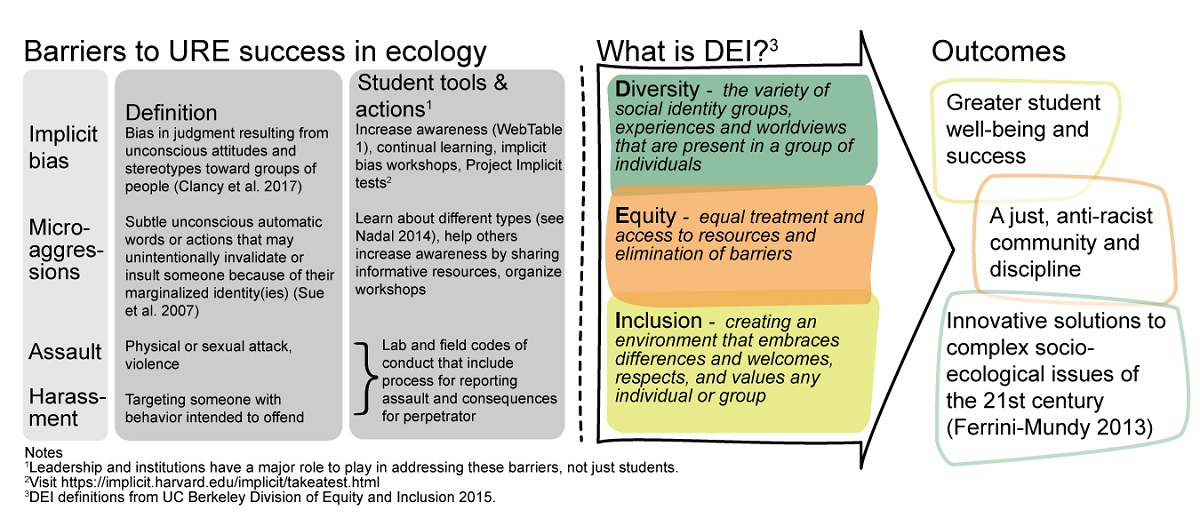Ecology is working to face its colonial roots and institutional inequities. As we build more diverse, equitable, and inclusive (DEI) institutions we must work to support new ecologists by empowering them with the knowledge and tools to succeed. Undergraduate research experiences (UREs) are critical for a student’s professional and interpersonal skill development and key for recruiting more diverse groups of students to ecology. Here, we highlight DEI dimensions of a URE in ecology, acknowledge safety considerations for field ecology, including harassment and assault, and provide tools to support the URE. This is written primarily for all URE students and secondarily for their advisors. We welcome students from underrepresented groups and encourage allyship from students from non-underrepresented groups. After reading this paper, we hope that all students feel more confident and excited about their URE and that advisors see how to improve DEI in their lab.

